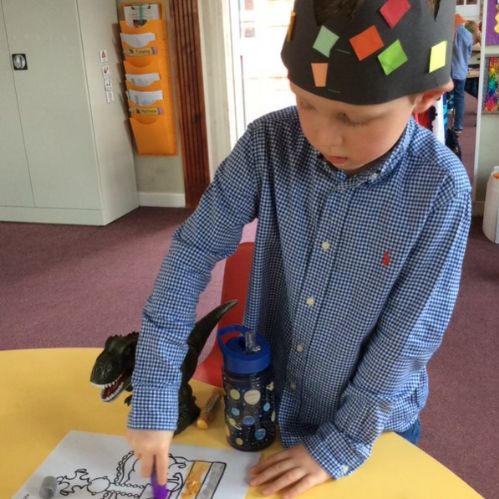SEND
Our Temple Meadow SEND Information Report
Mrs Van Straaten - Deputy Head and Inclusion Lead
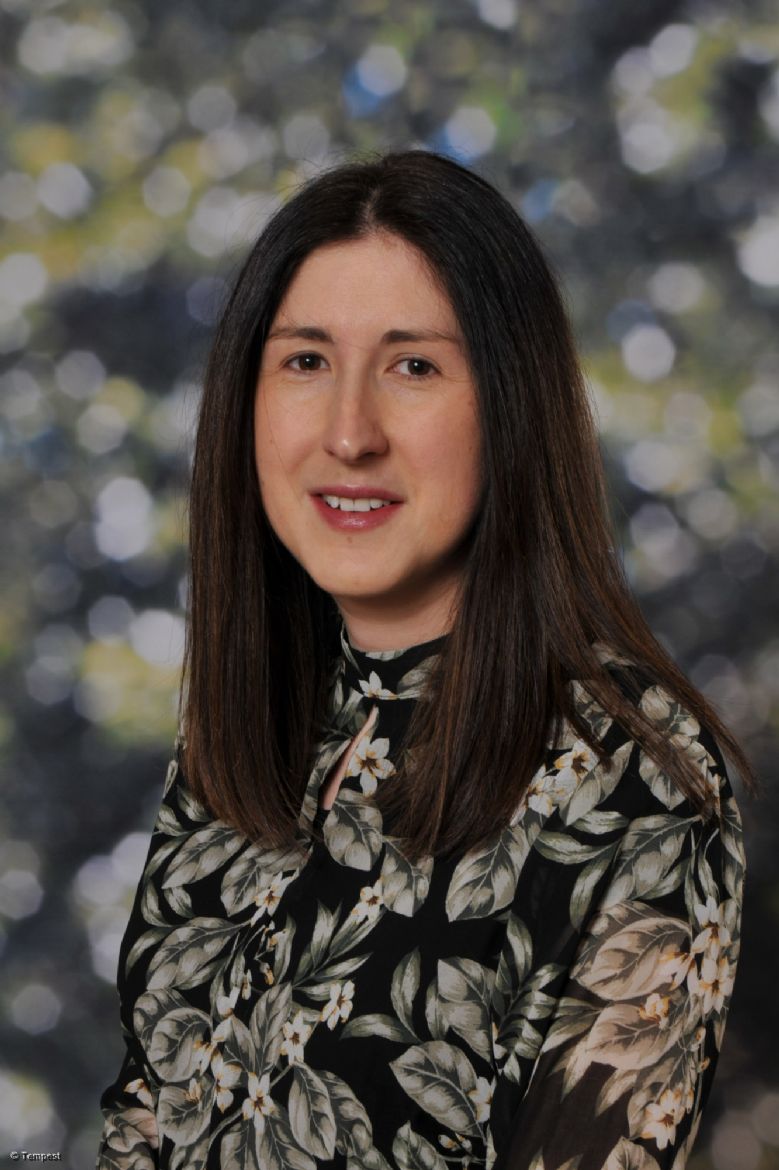
Mrs Lowe - Speech and Language Lead
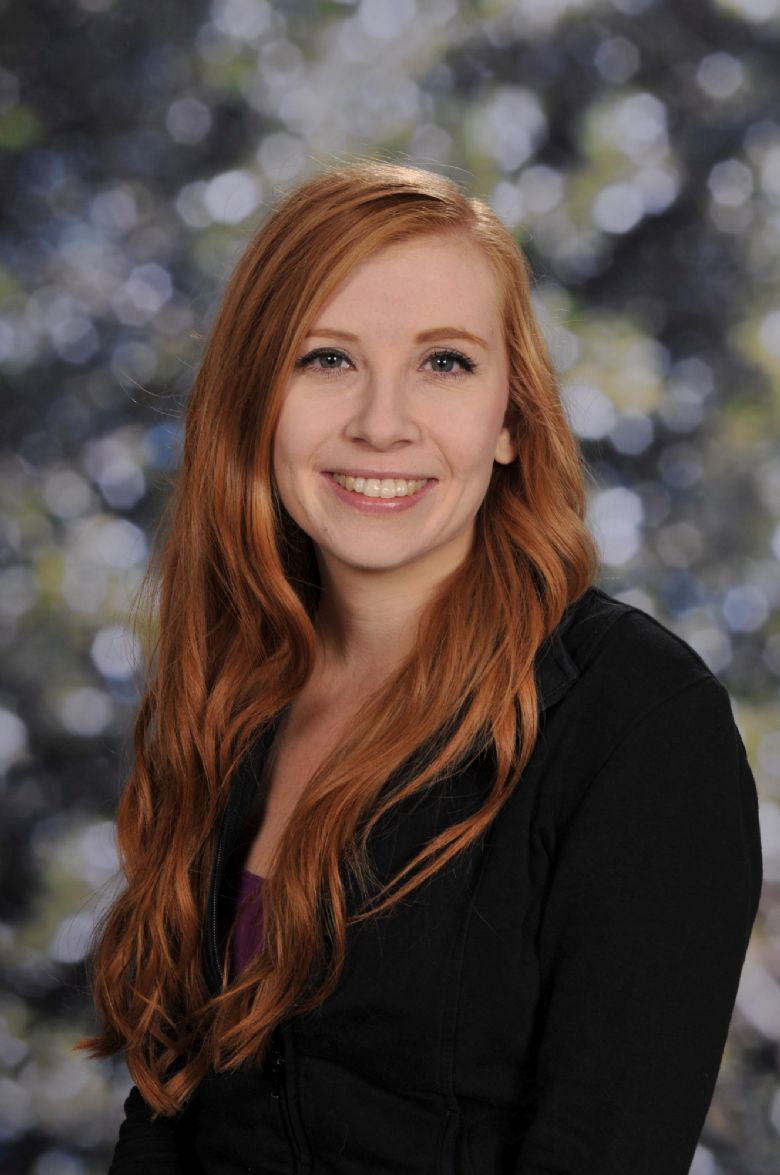
At Temple Meadow Primary School, meeting the needs of our pupils with Special Educational Needs and Disability is a team approach. The Special Educational Needs and Disability Coordinator (SENDCo) is Mrs Van Straaten (who has the National Award in Special Educational Needs Coordination) and the link Governor responsible for SEND is Anthony Hickinbottom.


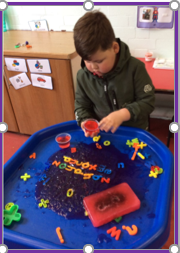
Our shared school values, underpin our teaching and learning and prepare our pupils, so that they are confident and happy citizens. We aim for all to contribute to creating a positive future for all as part of an inclusive society.
Our aim is that any pupil educated at Temple Meadow benefits from a lifelong positive impact from their educational experience. We aspire for all our pupils to have positive values that influence everything they do next in their education and in their future careers. We are dedicated to developing pupils to flourish and be the best they can be. As a school we strive for every child to experience success and reach their full potential through Quality First Teaching and by accessing our inspiring and relevant curriculum.
At Temple Meadow Primary School, we pride ourselves on knowing each and every child as a unique individual. We seek to remove barriers allowing maximum participation and success. We have high expectations for all pupils whilst respecting that some children have social, emotional and mental health needs and will require different strategies in order to support them in making progress. We respect that some children acquire, assimilate and communicate information at different rates and will need different teaching approaches and assessment processes so we are clear regarding next steps and successes.
What is ‘Special Educational Needs and Disability’?
A Special Educational Need (SEN) is a difficulty or barrier that affects a child’s ability to learn and to access the curriculum. A Disability is a long-term health condition which causes a difficulty or barrier to learn or to access the curriculum.
At Temple Meadow Primary School, we welcome children will a range of SEND needs. We pride ourselves on being an inclusive school that strives to provide both, an environment that is accessible to all and a curriculum that all children can access and achieve.
Code of Practice - 4 broad areas of need
As stated in the Code of Practice:
“These four broad areas give an overview of the range of needs that should be planned for. The purpose of identification is to work out what action the school needs to take, not to fit a pupil into a category. In practice, individual children or young people often have needs that cut across all these areas and their needs may change over time. For instance speech, language and communication needs can also be a feature of a number of other areas of SEN, and children and young people with an Autistic Spectrum Disorder (ASD) may have needs across all areas, including particular sensory requirements. The support provided to an individual should always be based on a full understanding of their particular strengths and needs and seek to address them all using well-evidenced interventions targeted at their areas of difficulty and where necessary specialist equipment or software.
The broad areas of need are:
Communication and interaction
Children and young people with speech, language and communication needs (SLCN) have difficulty in communicating with others. This may be because they have difficulty saying what they want to, understanding what is being said to them or they do not understand or use social rules of communication. The profile for every child with SLCN is different and their needs may change over time. They may have difficulty with one, some or all of the different aspects of speech, language or social communication at different times of their lives.
Children and young people with ASD, including Asperger’s Syndrome and Autism, are likely to have particular difficulties with social interaction. They may also experience difficulties with language, communication and imagination, which can impact on how they relate to others.
Cognition and learning
Support for learning difficulties may be required when children and young people learn at a slower pace than their peers, even with appropriate differentiation. Learning difficulties cover a wide range of needs, including moderate learning difficulties (MLD), severe learning difficulties (SLD), where children are likely to need support in all areas of the curriculum and associated difficulties with mobility and communication, through to profound and multiple learning difficulties (PMLD), where children are likely to have severe and complex learning difficulties as well as a physical disability or sensory impairment.
Specific learning difficulties (SpLD), affect one or more specific aspects of learning. This encompasses a range of conditions such as dyslexia, dyscalculia and dyspraxia.
Social, emotional and mental health difficulties
Children and young people may experience a wide range of social and emotional difficulties which manifest themselves in many ways. These may include becoming withdrawn or isolated, as well as displaying challenging, disruptive or disturbing behaviour. These behaviours may reflect underlying mental health difficulties such as anxiety or depression, self-harming, substance misuse, eating disorders or physical symptoms that are medically unexplained. Other children and young people may have disorders such as attention deficit disorder, attention deficit hyperactive disorder or attachment disorder.
Sensory and/or physical needs
Some children and young people require special educational provision because they have a disability which prevents or hinders them from making use of the educational facilities generally provided. These difficulties can be age related and may fluctuate over time. Many children and young people with vision impairment (VI), hearing impairment (HI) or a multi-sensory impairment (MSI) will require specialist support and/or equipment to access their learning, or habilitation support. Children and young people with an MSI have a combination of vision and hearing difficulties. “
How do we approach SEND identification? What is our Graduated Approach?
We have a clear approach to identifying and responding to SEND concerns. We recognise the benefits of early identification; identifying needs at the earliest point and then planning effective provision with the aim of improving the long-term outcomes for our pupils.
At Temple Meadow Primary School, any school adult; with a concern can complete an Internal Referral. These concerns may come from observations within the classroom; observations outside the classroom; monitoring linked to the whole school behaviour policy; pupil progress meetings and/or outside agency information. These are shared directly with the SENDCO, who supports school staff and parents with potential strategies to address the areas of concerns identified. These are regularly reviewed and progress is measured in order to access the next steps required.
As a school we recognise that as parents, you know your child best and we value your knowledge and support. If you are concerned that your child has a special educational need (SEN), in the first instance we ask you to speak to your child’s class teacher who will then liaise with our Special Educational Needs Coordinator as appropriate. Concerns can be discussed at parents’ evenings or by making an appointment to meet with your class teacher at any point throughout the school year.
Once additional strategies have been implemented, pupil progress is then monitored in a timely manner. In many cases, these short-term interventions will have been successful, and no further action is required. If it is identified that further support is required, pupils will be added to our school SEND register and a Primary Area of Need identified. Parents are always informed that this milestone has been reached and parents can expect clear communication with their child’s class teacher regarding the next steps. School will generate a Provision Map for the pupil to capture all the additional support being offered by school and outlining a Plan, Do, Review cycle.
School admission arrangements for pupils with SEND
Applications for school admissions are available from the school office or by telephone (01384 569021). You will need to provide a full birth certificate with the application. We follow Sandwell Councils Admissions Policy and our oversubscribed criteria are available from the school office. If you are unable to secure a place for your child at our school the appeals process is managed by Sandwell Admissions Team.
Prospective parents are very welcome to visit our school. If you would like to come and look around, please telephone the school office to make an appointment (01384 569021).
The accessibility plan for SEND is included within our SEND policy which has been accepted and approved by the governing body. All SEND decisions and arrangements made in school, are made in line with Section 6 of the Special educational needs and disability code of practice: 0 to 25 years which relates to primary schools.
For further information about SEND or to speak to the co-ordinator, please contact Mrs Van Straaten through the school address; TM.admin@meadow.sandwell.sch.uk.
Any complaints from parents of children with special educational needs (SEN) are handled in line with the school's complaints policy (please see the policies page).
Pupil's joining Temple Meadow
At Temple Meadow Primary School we do have high rates of pupil population mobility. Pupils joining Temple Meadow may already have a known SEND need. In these circumstances, we collate further information from a range of agencies in order to ensure that appropriate provisions are in place for when the child joins us. However, we may identify a potential as yet unrecognised SEND need, through our new starter home visits or transition meetings with the previous settings. This information is always discussed with parents and a plan is created.
Pupil's leaving Temple Meadow
At Temple Meadow Primary School we support our SEND pupils with their transition to their new settings. We are always happy to help facilitate transition and will handover all documents and information to the receiving school.
Working with Sandwell Inclusion Support
Sandwell Inclusion Support works across Sandwell to improve the education, learning, development and mental health and wellbeing of all children and young people (ages 0 - 25); with a particular focus on those who are vulnerable and / or have special educational needs.
It is a multi-disciplinary service that provides: assessment and intervention; specialist teaching; advice; consultation; information and support for parents; carers; schools and other educational settings, regarding children and young people who have a wide range of needs. These needs can range from severe physical disabilities to mild learning difficulties and serious social, emotional or behavioural difficulties.
Temple Meadow Primary School works closely with link representatives from the Inclusion Support team. If as a school we feel we require some further or more specialist advise about a child we will seek support from this team. Parents will always be made aware of this and will be requested to provide consent for this to take place.
| Educational Physcologist | Advisory for teachers for Learning (SENAT-L) | Social, Emotional, Mental Health Advisory Teacher | Complex Communication and Autism |
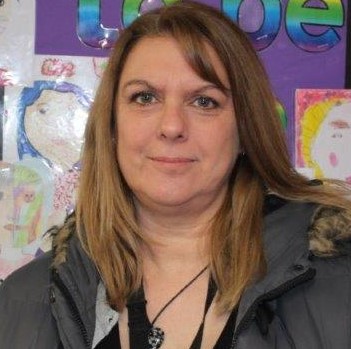 |
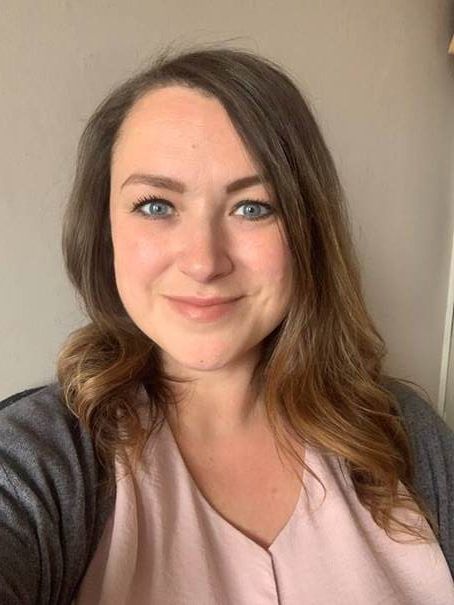 |
 |
|
| Stephanie Holden | Michelle Juke | Sarah Messenger | Jane Campbell |
| All educational and child physiologists in our team have a rich and diverse experience of working with children and young people and have completed professional training in Educational and Child Psychology | The Learning Support Team comprises Special Educational Needs Advisory Teachers for Learning (SENAT-L) including specific Learning Difficulties (Dyslexia) | The Behaviour Support Team is a team of Special Educational Needs Advisory Teachers with specialist knowledge of social, emotional and behavioural difficulties | We are a highly experienced team of specialist practitioners who can help schools meet the needs of children with complex communication disorders and autism. |
Further information about the Inclusion Support team please visit:
Inclusion Support | Family Information Service Hub (sandwell.gov.uk)
Working with other outside agencies
At Temple Meadow we value the guidance, support and input from a wide range of agencies when working towards the best possible outcomes for our children.
We may seek more specialist advice from wider agencies including the Speech and Language Therapy service, Occupational Therapist or Physiotherapist
Speech and Language
Education Health and Care Plans
As a school we are extremely proactive when it comes to advocating pupil needs and working with parents to apply for Education Health and Care Plans. The EHCP process is part of the overall Graduated Assessment period. Children will already be on the SEND register and will already have had a period of involvement from the Inclusion Support team. If school and parents feel that a child needs, exceed those able to be met within the school notional budget; we can hold a Community Assessment Meeting (CAM). During this meeting we work together with wider professionals to decide if we feel the criteria has been met, and if it has we request the Local Authority conduct an assessment.
An Education, Health and Care plan is a legal document which describes a child or young person’s (aged up to 25) special educational needs, the support they need, and the outcomes they would like to achieve.
The special educational provision described in an EHC plan must be provided by the child or young person’s local authority. This means an EHC plan can give a child or young person extra educational support. It can also give parents and young people more choice about which school or other setting the child or young person can attend.
An EHC plan can only be issued after a child or young person has gone through the process of an Education, Health and Care needs assessment.
At Temple Meadow we pride ourselves on meeting the needs of our EHCP pupils and are strong advocates for individuals' needs if we feel that an alternative setting or provision would be able to better meet their needs.
To find out more information about EHCPs and the process please visit:
Education, Health and Care Plans (EHC Plan) | Family Information Service Hub (sandwell.gov.uk)
Inclusion
Every child at Temple Meadow Primary school who is on the SEND register will have a detailed provision map. This provision map will outline any additional small group or 1:1 sessions being undertaken or additional resources being provided to each pupil. We also focus on individual pupil needs and ensuring they have access to the whole curriculum, including curriculum enrichment.
Inclusive residential experiences

Inclusive residential experiences

Mental Health and wellbeing
We are extremely proud of the range of interventions that we offer to meet individual pupil needs. Since Covid-19 we have paced an even higher focus on pupil wellbeing and positive mental health. A new introduction to our whole school provision map this academic year has been our Forest School Provision. This has been run by one of our experienced teachers, Mrs Bayley.
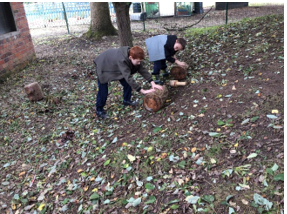
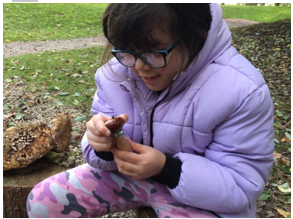
Other helpful services and links
As a school we work closely with and promote a range of external agencies that we know can really help our young people and familiar.
SENDIASS
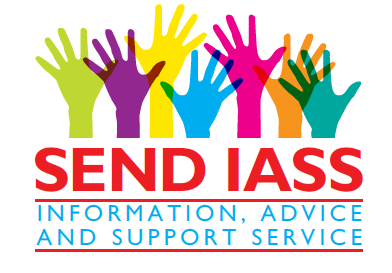
SENDIASS are the Special Educational Needs and Disability Information Advice and Support Service (SENDIASS) for Sandwell families.
SENDIASS aim is to enable parents/carers, children and young people to make informed decisions about education, by ensuring they have the advice, information and support to make those decisions.
They are a free, impartial and confidential service. This means they won’t charge you for their service. Their advice is not led by the Local Authority but is guided by National policies on SEND. They do not share information unless permission is given or if a child is deemed at risk.
What they can do to help you
- Provide clear, accurate and impartial advice about special educational needs and disability (SEND)
- Enable you to use your rights to ensure the educational needs of your child are met
- Listen to your questions and concerns
- Offer support and guidance with SEN procedures
- Explain the process of accessing SEN School Support
- Provide support in preparing for meetings (sometimes they can attend these with you, depending on their availability)
- Support you through the statutory assessment process for an Education Health and Care Plan (EHCP)
- Answer questions around your child’s EHCP
- Offer support to help you through the EHC Assessment and application for EHCP
- Signpost you to other national and local services where necessary, including support groups and activities
- Help you to resolve disagreements (including referring you for independent SEN mediation, where appropriate)
- Provide training for parents/carers and professionals on different aspects of SEND.
To find out more information about how SENDIASS could help, please visit:
SENDIASS | Family Information Service Hub (sandwell.gov.uk)
BEAM
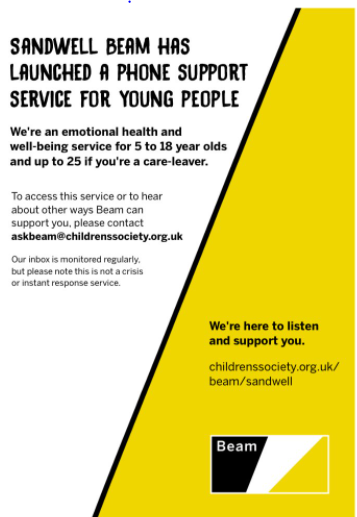
Are an emotional health and well-being service for young people aged 5-18 (or up to 25 if you're a care leaver) who are registered with a GP in Sandwell.
Sandwell BEAM can:
- recommend strategies and techniques that aim to make life easier – for example, how to manage a panic attack, or how to improve sleep
- give practical suggestions and advice – this might be suggesting you look at website or that you contact another service
- provide a listening ear if you have something you want to get off your chest.
For further information please visit:
BEAM Sandwell | The Children's Society (childrenssociety.org.uk)
CAMHS
Sandwell CAMHS is a specialist mental health service commissioned to provide interventions to those children, young people and their families who are experiencing/most vulnerable to mental health problems and present with concerns that are severe and/or complex in nature. They support young people aged between 5-18 years of age with a GP registered in the Sandwell area.
Within the service there are a range of staff, including community psychiatric nurses, family therapists, occupational therapists, psychiatrists, psychologists, psychotherapists and a social worker. There are two community psychiatric nurses who work with Looked After Children and nursing and psychology staff who work with individuals with an intellectual (learning) disability. Having this range of staff from a variety of backgrounds and experience means we they are more able to care for someone’s individual needs.
How do CAMHS help?
When an appropriate referral is received they offer the young person a choice appointment. Choice is an opt-in screening assessment which provides the young person and family/carers to explore their mental health needs with a CAMHS clinician. At the end of this appointment it may be that a specialist mental health service is not appropriate and they can therefore discuss alternative options and support the referral process to such services where possible.
If it is felt CAMHS would be helpful they will discuss appropriate interventions and support with the young person and their family. In most cases young people are offered a period of core partnership work, which usually involves attending CAMHS for approximately six sessions of individual work with an appropriate clinician. Our work aims to promote the positive mental health of children and young people in Sandwell.
A variety of therapies are available which may include talking-based therapy, cognitive behavioural therapy and creative therapy. Medication may also be appropriate and would be reviewed by one of the doctors in the team. Interventions will be offered based on presenting issues and where appropriate in line with guidelines set by the National Institute of Clinical Excellence (NICE). For example, family therapy is offered to Looked After Children (LAC) and individuals with an eating disorder.
To find further information about CAMHS please explore: Who are we (Sandwell) | CAMHS (blackcountryminds.com)
As a School we work closely with the Sandwell Local Authority, please do use this link to explore the Sandwell Local offer. Sandwell Local Offer | Family Information Service Hub
Other Useful links:
Family Information Service Hub (sandwell.gov.uk) Sandwell Local Offer
https://www.autismwestmidlands.org.uk/
https://www.actionforchildren.org.uk/in-your-area/services/disability/sandwell-iass/
SEND terminology
At Temple Meadow primary School we understand that the terminology used in the world of SEND can sometimes be confusing. On this page we will try to give clear and simple definitions of the most commonly used terminology and acronyms.
ADD - Attention Deficit Disorder: a neurological disorder that causes a range of behaviour problems such as difficulty attending to instruction, focusing on schoolwork, keeping up with set tasks, following instructions, completing tasks and social interaction.
ADHD - Attention Deficit Hyperactivity Disorder: a mental health disorder that can cause above-normal levels of hyperactive and impulsive behaviours. People with ADHD may also have trouble focusing their attention on a single task or sitting still for long periods of time. Both adults and children can have ADHD.
Assessment - The process that identifies a person's special educational needs as well their strengths. An assessment is a joint enterprise involving parents, the young person and professionals to identify any provision that is needed to meet any identified special educational needs, so that we can achieve agreed outcomes.
Autism - A term used to describe a developmental condition where people have difficulties understanding and interacting with others as well as difficulties interpreting inputs from the world around them.
BSL - British Sign Language. A manual language used by Deaf people.
CAMHS - Child and Adolescent Mental Health Service. A service that provides support and interventions for young people with mental health difficulties. In Sandwell the service is delivered by the Black Country Partnership NHS Trust.
CCG - Clinical Commissioning Groups commission most of the hospital and community NHS services in the local areas for which they are responsible. Commissioning involves deciding what services are needed for diverse local populations, and ensuring that they are provided.
Cerebral Palsy - Cerebral palsy is the name for a group of lifelong conditions that affect movement and co-ordination. It's caused by a problem with the brain that develops before, during or soon after birth.
CAM - Community Assessment Meeting. The meeting at which a decision is made as to whether a child's special educational needs are significant enough to start an assessment for an Education Health and Care Plan (EHCP). A CAM is usually called by a school and is attended by parents, professionals and the child/young person
Developmental Delay - A developmental delay refers to a child who has not gained the developmental skills expected of him or her, compared to others of the same age. Delays may occur in the areas of motor function, speech and language, cognitive, play, and social skills.
Dyscalculia - a learning difficulty that impairs an individual's ability to learn number-related concepts, perform accurate mathematical calculations, reason and problem solve, and perform other basic mathematical skills.
Dysgraphia - a learning difficulty that affects children and adults, and interferes with practically all aspects of the writing process, including spelling, legibility, word spacing and sizing, and expression.
Dyslexia - a common type of learning difficulty that can cause problems with reading, writing and spelling.
Dyspraxia - is a condition affecting physical co-ordination. It causes a child to perform less well than expected in daily activities for their age, and appear to move clumsily.
ECP - Educational and Child Psychologist
EHCP - Education Health and Care Plan. An education, health and care plan is for children and young people aged up to 25 who need more support than is available through special educational needs support. EHC plans identify educational, health and social needs and set out the additional support to meet those needs and to achieve specified outcomes.
Learning Disability - Learning disability is an umbrella term for lots of different conditions. It is a brain condition, not a disease, and affects a person’s intellectual ability. A person with a learning disability is likely to find learning skills difficult and have some developmental delays. They may find understanding information and the world around them, more difficult than other people.
Local Offer - A Local Offer gives children and young people with special educational needs or disabilities and their families information about what support services the local authority think will be available in their local area. There are statutory requirements for what must appear in a Local Offer and it has its own set of web pages.
Occupational Therapist - also known as an OT, an occupational therapist's job role is to help people of all ages overcome the effects of disability caused by illness, ageing or accident so that they can carry out everyday tasks or occupations. An occupational therapist will consider all of the patient's needs - physical, psychological, social and environmental.
Paediatrician - A medical consultant who specialises in the health needs of children and young people
Personal Budget - A sum of money paid directly to a disabled person or their family to allow them to purchase the services they need. Personal budgets are available in the areas of social care, health and education following a statutory assessment.
Physiotherapist - Physiotherapists help people affected by injury, illness or disability through movement and exercise, manual therapy, education and advice.
SEMH - Social Emotional and Mental Health. One of the four headline categories of special educational need.
SENCO - Special Educational Needs Co-ordinator. By law every school must have a SENCO who is responsible for how the school meets the needs of any pupil who has special educational needs
SEND - Special Educational Needs and Disability. The term does have a legal definition. More details can be found in the SEND Code of Practice
SENDIASS - Special Educational Needs and Disability Information Advice and Support Service. The service (in every local authority) which gives information, advice and support to families of children with special educational needs. It can also support families in their dealings with the local authority and other professionals.
SEN Information Report - Every school must produce an SEN Information Report which sets out in detail how it meets the needs of all pupils in the school with special educational needs. The report must be published on the school's website.
Short Breaks - Opportunities for carers to take a break from their caring responsibilities. Every local authority is required to publish a short break offer which details how the services it provides allows carers to take sufficient breaks from caring for a disabled child/young person.
Speech and Language Therapist - Speech and language therapists provide treatment, support and care for children and adults who have difficulties (for physical or psychological reasons) with communication, eating, drinking and swallowing.
SpLD - Specific Learning Difficulty - An umbrella term used to describe a number of learning difficulties including dyslexia, ADD, ADHD, dyscalculia, dyspraxia and dysgraphia
Young Carer - You're a young carer if you're under 18 and help to look after a relative with a disability, illness, mental health condition, or drug or alcohol problem
.png)


